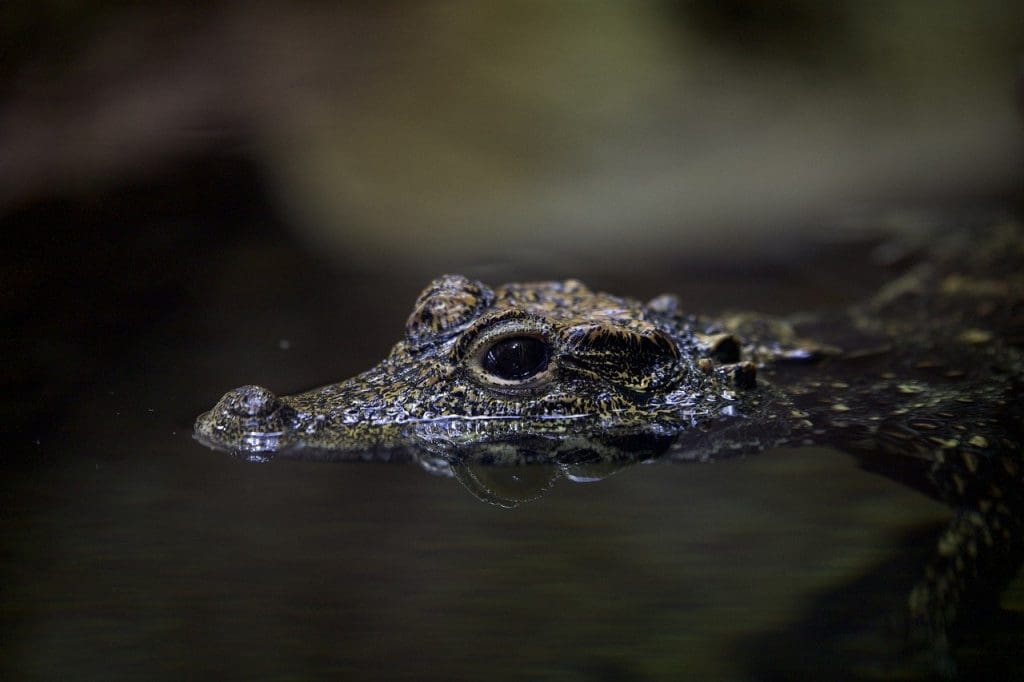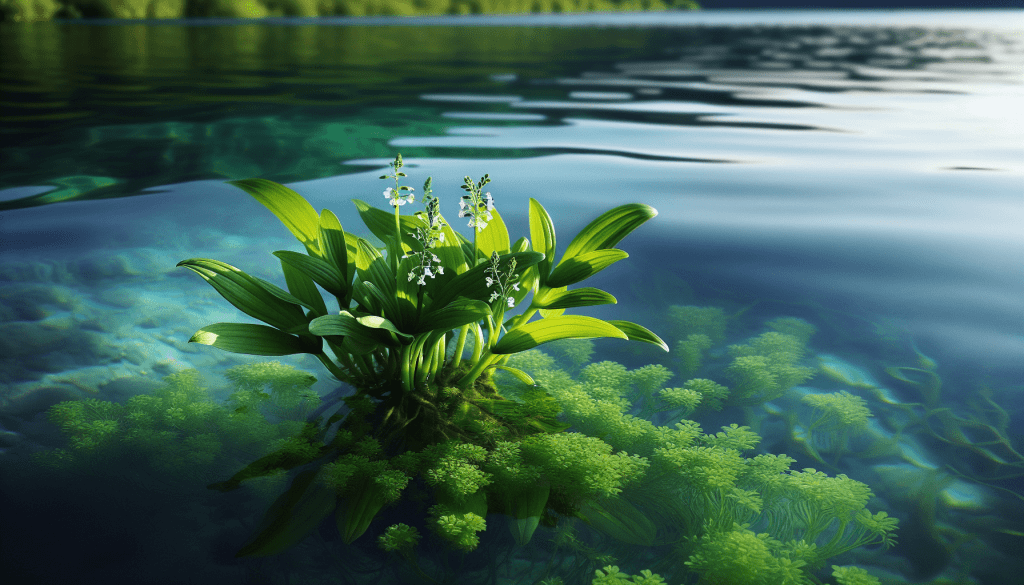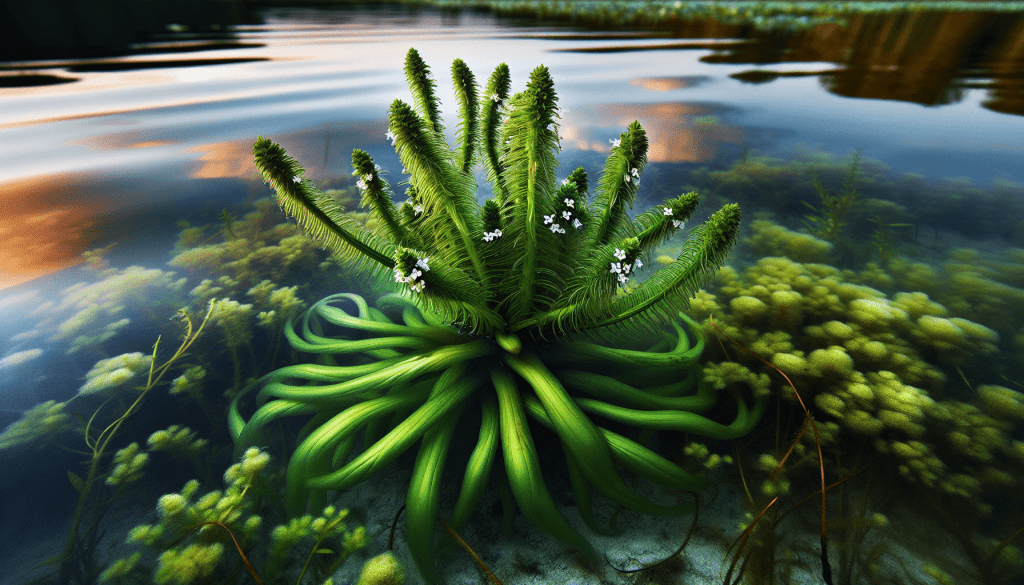In “The Complete Guide to Alligator Weed Control in Lakes,” you’ll discover the essential strategies and practical tips for managing this invasive plant species. Alligator weed can quickly overtake your favorite lake, making it imperative to employ effective control methods to maintain the water’s health and usability. This comprehensive guide covers everything from identifying alligator weed to implementing sustainable removal techniques, ensuring you can enjoy your lake without the nuisance and potential hazards of this aggressive plant. Dive into the details to equip yourself with the knowledge needed to protect and preserve your natural water resources. Have you ever looked out at your serene lake, only to notice a green invader disrupting its natural beauty? Chances are, you might be dealing with alligator weed. This aggressive aquatic plant can wreak havoc on your lake’s ecosystem if not controlled. But don’t worry, you’re in the right place for guidance.

What is Alligator Weed?
Alligator weed (Alternanthera philoxeroides) is a highly invasive aquatic plant native to South America. It has made its way into many bodies of water around the world, including lakes, rivers, and ponds. This perennial weed can thrive both in water and on land, making it a formidable opponent. Its dense growth can choke out native plants and disrupt habitats for aquatic animals.
Identification of Alligator Weed
Recognizing alligator weed is crucial for controlling it. This plant has elongated, lance-shaped leaves that grow in pairs along its stem. The stems can be hollow or solid and usually have a reddish tint. The flowers are small, white, and appear in clusters resembling clover heads.
| Feature | Description |
|---|---|
| Leaves | Elongated, lance-shaped, paired along the stem |
| Stems | Hollow or solid; usually reddish |
| Flowers | Small, white, and clustered in clover-like heads |
Knowing these key features will help you differentiate alligator weed from other aquatic plants.
Why is Alligator Weed a Problem?
Invasive species like alligator weed can dominate and alter ecosystems, leading to a range of ecological, economic, and recreational problems. Here’s a breakdown of the issues it can cause:
Ecological Impact
Alligator weed forms dense mats that can smother native vegetation, reducing biodiversity in your lake. This results in a lack of food and shelter for various aquatic organisms. Over time, this can disrupt the balance of the entire ecosystem.
Economic Impact
The presence of alligator weed can affect industries reliant on water bodies, such as fishing and tourism. Dense mats of alligator weed can clog water intake systems, requiring costly removal efforts and maintenance.
Recreational Impact
For those who enjoy water-based activities like fishing, boating, and swimming, alligator weed can be a nuisance. It can make these activities difficult or even dangerous, limiting your enjoyment of your lake.
Methods of Controlling Alligator Weed
Controlling alligator weed in lakes usually involves a combination of methods. Each method has its pros and cons, and often, an integrated approach yields the best results.
Mechanical Control
Mechanical control methods involve physically removing the weed from the water. This can be effective but labor-intensive.
Hand-Pulling
Hand-pulling is feasible for small infestations but can be laborious.
Pros:
- Environmentally friendly.
- Can be effective for small areas.
Cons:
- Labor-intensive.
- Risk of fragmenting the plant and spreading it further.
Harvesting Machines
For larger infestations, mechanical harvesters can be used to cut and collect the weed.
Pros:
- Effective for large areas.
- Quick removal.
Cons:
- Expensive to operate.
- Can disturb aquatic life.
Chemical Control
Chemical control involves using herbicides to kill the alligator weed. Make sure to consult with local regulations and professionals before applying any chemicals.
Aquatic Herbicides
The use of approved aquatic herbicides can selectively target alligator weed. Commonly used herbicides include glyphosate and 2,4-D.
| Herbicide | How it Works | Pros | Cons |
|---|---|---|---|
| Glyphosate | Systemic herbicide, absorbed and translocated | Effective on mature plants | Can affect non-target plants |
| 2,4-D | Mimics plant hormones, causing uncontrolled growth | Selective for broadleaf weeds | Requires careful application |
Pros:
- Highly effective.
- Can cover large areas quickly.
Cons:
- Potential environmental impacts.
- Requires professional application.
Biological Control
Biological control involves introducing natural predators to control the weed.
Alligator Weed Flea Beetle
The alligator weed flea beetle (Agasicles hygrophila) feeds on the leaves of the weed.
Pros:
- Environmentally friendly.
- Self-sustaining once established.
Cons:
- Slow to establish.
- May not eradicate the weed completely.
Best Practices for Alligator Weed Control
Controlling alligator weed isn’t just about employing one method over another. It’s about adopting best practices to ensure long-term success. Here are some tips:
Early Detection and Rapid Response (EDRR)
The sooner you can detect and respond to an infestation, the easier it will be to control. Regular monitoring and the use of EDRR protocols can help nip potential problems in the bud.
Integrated Pest Management (IPM)
Using a combination of mechanical, chemical, and biological controls often yields the best results. This multi-faceted approach can help mitigate the downsides of each method while maximizing effectiveness.
Follow-Up and Monitoring
After initial control measures are applied, continuous monitoring is crucial. Follow-up treatments may be necessary to keep the alligator weed from re-establishing itself.

DIY Alligator Weed Control
If you prefer a hands-on approach, here are some DIY methods you can try. Note, however, that for large infestations, professional help may be more effective.
Manual Removal
For smaller infestations, manual removal can be effective. Be sure to wear gloves and try to remove the entire plant to prevent fragmentation.
Homemade Herbicide Solutions
Some people opt for homemade herbicide solutions as a more natural alternative. A mixture of vinegar and salt can sometimes work, though it’s less effective than commercial herbicides.
Barriers
Installing barriers can help prevent the spread of alligator weed. Floating barriers or mesh can be useful in creating contained areas.
Professional Alligator Weed Control Services
Sometimes, the scale of an alligator weed problem requires professional intervention. Professional services can offer a range of solutions tailored to your specific needs.
Consultation and Assessment
Professionals will often start with a consultation and assessment to determine the extent of the problem and the best course of action.
Custom Control Plans
Based on the assessment, they can devise a custom control plan that may include mechanical, chemical, and biological methods.
Maintenance
Professionals will also offer maintenance plans to ensure that the alligator weed doesn’t return after the initial treatment.

Environmental Considerations
When controlling alligator weed, it’s essential to consider the broader environmental impact.
Non-Target Species
Make sure your control methods do not harm non-target species. This is particularly important when using chemical and biological controls.
Water Quality
Some control methods can affect water quality. Always consider how your actions might impact the larger ecosystem of the lake.
Regulations and Compliance
Always check with local regulations before applying any control measures. Certain chemical herbicides require permits, and introducing biological agents may also be subject to regulations.

How to Prevent Alligator Weed Infestations
Prevention is always better than cure. Implementing a few preventive measures can save you a lot of trouble in the long run.
Regular Monitoring
Regularly inspect your lake for signs of alligator weed. Early detection can prevent small problems from becoming big ones.
Educate and Inform
Educate those who use your lake about alligator weed and how to spot it. The more eyes you have looking out for this invasive species, the better.
Responsible Disposal
If you remove alligator weed, make sure you dispose of it responsibly. Avoid leaving it on the shore where it could re-enter the water.
Case Studies and Success Stories
Understanding how others have successfully controlled alligator weed can provide valuable insights.
Case Study 1: Small Lake in Florida
A small lake in Florida used an integrated approach, combining mechanical removal and the introduction of alligator weed flea beetles. Within a year, the infestation was reduced by 80%.
Case Study 2: Recreational Lake in Texas
A popular recreational lake in Texas suffered from extensive alligator weed coverage. With the help of professional services, they used aquatic herbicides and regular monitoring to bring the infestation under control.
Case Study 3: Community Effort in Louisiana
In Louisiana, a community came together to tackle an alligator weed problem. Volunteers conducted hand-pulling efforts, and local experts advised on using biological controls. The lake’s health has significantly improved over two years.

Conclusion
Alligator weed can be a challenging adversary, but with the right knowledge and approach, you can reclaim your lake. Whether you opt for DIY methods or professional services, the key is consistency and a willingness to adapt. Regular monitoring, an integrated approach, and community involvement can ensure that your lake remains a beautiful, welcoming environment for everyone to enjoy.
So take heart—you’re well-equipped to manage and control alligator weed in your lake. With this comprehensive guide, you’re just a few steps away from restoring the natural balance of your waters.
